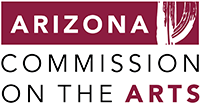A story can shift the narrative, forcing the audience to embrace another perspective—one that may not have been considered yet. Perhaps the power of a story is best captured by those who have made a profession out of storytelling. Directors, writers, artists, and others use different mediums to convey a story, one that will compel audiences to take notice, often eliciting an emotive response, whether it be happiness, anger, disgust, sadness, or ____ (enter emotion here). In the book The Elements of Persuasion: Use of Storytelling to Pitch Better, Sell Faster, and Win More Business, director Richard Maxwell and corporate consultant Robert Dickman explain that “a story is a fact, wrapped in an emotion that compels us to take action that transforms our world.” Yet, this idea is not restricted to the box offices of movie theaters or the corporate and marketing offices of industry; it is also a driving force behind the ability of organizations and activists to draw attention to important social and political issues.
As a poet and global health researcher, I am keenly aware of the power I wield with my pen. In both disciplines, I strive to create empathy and showcase the deeper underlying narratives or data that feed the story. Often, I rely on my experiences in the field to help inform my stories that convey the urgency of my work.
Yet, it takes discernment to avoid the traps of spectacle that minimize the central characters to mere tropes. In Chris Bobel’s book, The Managed Body, she criticizes the use of the “spectacularized representation of girls in the Global South to authorize ‘rescue’ by well-meaning ‘saviors’” often employed by organizations to elicit support for menstrual hygiene management or MHM. Furthermore, she asserts that “the spectacle serves to consolidate and unify bits and pieces, to flatten complexity to make it more discernible, and thus, digestible,” where “their lived experiences are rendered monolithically.” They are often depicted through the most extreme stories, in which they are disempowered and disembodied, and where local and traditional knowledge is disregarded as either backward or inadequate. Yet, there is another story here, often neglected in favor of the spectacle, that I would argue is just as powerful. It speaks of their resilience, ingenuity, and resourcefulness.
Thus, great stories come with great responsibility! As researchers, we should use our data to tell a story, making our findings accessible and relatable, as there is power in this craft. As the famed researcher and storyteller Brené Brown once said, “maybe stories are just data with a soul.” The use of compelling stories can change minds, shift narratives, and empower people.
Yet, it is imperative that we avoid the pitfalls of storytelling, especially as global health practitioners and researchers. We must not rely on a single narrative to depict the lived experiences of people in the Global South. I further urge that we avoid using spectacle in place of fostering a deeper understanding of the complexities that govern their lives and choices. Lastly, we must refrain from inserting ourselves into their stories, becoming the central characters of their lives. These are their stories to tell - we are simply stewards, ensuring they are heard.


©2024. Made with (❤︎) in Yachayninchik